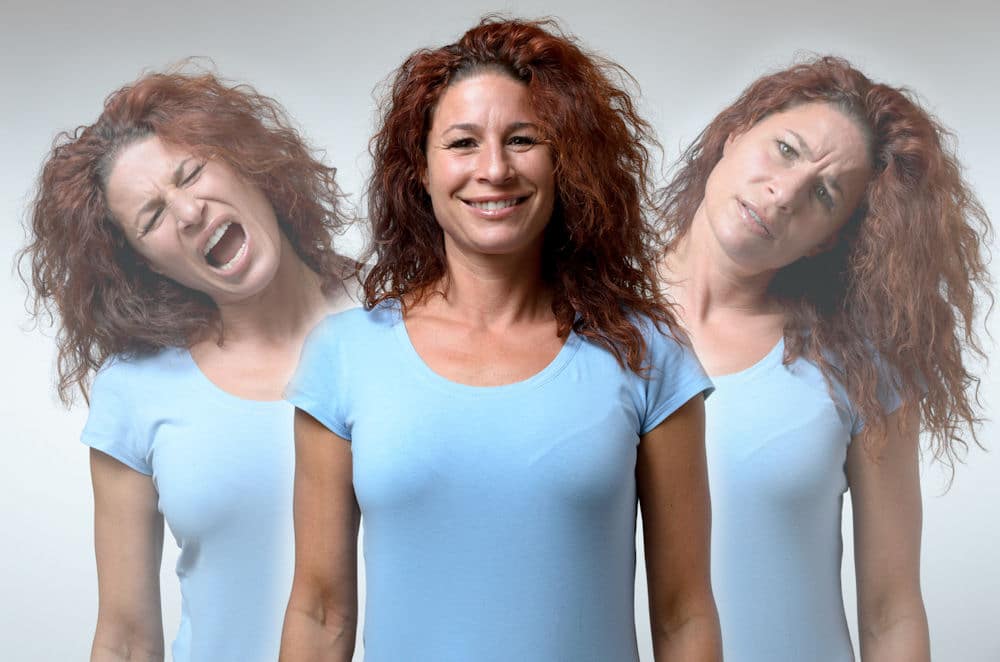Most people who deal with psychosis have an underlying mental health condition. The combination of drugs and mental illness can have serious effects on the mind and body. Psychosis does not have to last forever and our staff is dedicated to ensuring a full recovery for our clients.
What is Psychosis?
Psychosis is a state of mind in which a person loses touch with reality. They have trouble differentiating between reality and delusions. Typically, individuals who experience psychosis suffer from mental illness, but it can also be caused by drugs or alcohol.
Drug-induced psychosis occurs when a person consumes too much of one drug or mixes substances. Individuals in this mental state become detached from normal life and may begin having hallucinations. In many cases, it is found that people with drug-induced psychosis have underlying mental health issues.
What Age Groups Experience Psychosis?
Typically, people affected by psychosis first experience an altered state of mind between the ages of 18 and 30. That being said, it can affect people of all ages depending on different factors. Each year in the U.S., there are around 100,000 new cases of psychosis.
Substance Abuse
When an individual consumes an illegal drug or excessively uses a legal substance outside of a prescription, this is considered substance abuse. Substance abuse is one of the leading causes of death in the United States. It is likely that you know someone close to you who struggles with substance abuse. It is very difficult to battle and overcome substance abuse on your own, so it’s important to seek help for yourself or your loved ones.
Drug Abuse
Over-consumption of drugs, legal or illegal, can seriously affect the mind and body. Potential side effects of drug abuse include mental health issues, psychotic episodes, seizures, and more. Drug abuse can completely change the physical makeup of the human brain which makes it difficult to perform basic cognitive functions. When the brain becomes damaged, people are more likely to experience a psychotic episode.
Alcohol Abuse
Alcohol is a legal substance that is heavily abused in the United States. When abused, alcohol can lead to serious problems in everyday life. It can also cause a person to develop a mental illness such as anxiety or depression. After developing a mental illness, the brain begins to lose basic functions. People who have a combination of substance abuse and mental health issues are more prone to psychosis
Alcohol damages the brain in a similar way that drugs do but can have even greater long-term effects. “Delirium tremens” is a set of severe symptoms caused by alcohol abuse. Symptoms of “delirium tremens” may include seizures, hallucinations, and body tremors.
What Causes Drug-Induced Psychosis?
Drug-induced psychosis is mainly caused by substance abuse. If an individual is taking more than a prescribed dosage of medication or consuming illegal drugs, they are at risk of a psychotic episode. The factors that may lead to drug-induced psychosis may include dosage, drug type, and physiology.

Mental Illness
The majority of people who struggle with drug-induced psychosis also have a mental illness. This includes conditions like schizophrenia, bipolar disorder, and depression. When mental illness is mixed with drugs, the brain can become easily overwhelmed and cause a person to have a psychotic episode.
Mixing Substances
People may experience drug-induced psychosis if they are mixing substances. It is extremely dangerous to mix substances, especially without knowing the consequences. When two or more drugs are affecting the brain, the effects may combine or intensify. In many cases, mixing substances can lead to psychosis and potentially even an overdose.


Withdrawal
When a person decreases drug usage or quits altogether, this is called withdrawal. People that are going through withdrawal may start to experience psychotic symptoms. Drugs and alcohol cause the brain to become reliant on certain substances. The chemical makeup of the brain can completely alter as a result of this.
Out of all substances, alcohol withdrawal is the most commonly induces psychosis. The effects of long-term alcohol addiction can be life-threatening. Individuals may experience a category of symptoms called “delirium tremens”. The symptoms of “delirium tremens” include
- Fatigue
- Confusion
- Restlessness
- Seizures
Types of Drugs That Induce Psychosis
Marijuana
One of the most commonly used drugs in the United States is marijuana, known for its psychoactive effects. Marijuana can be used as a pain reliever but is primarily used recreationally. The chemical in marijuana, THC, binds to receptors in the brain that control basic functions like memory, balance, and coordination. When a person consumes too much THC at once, they may experience psychotic symptoms such as hallucinations.
Amphetamines
Amphetamines are a class of drugs used to treat attention deficit disorders and sleep-related conditions. For example, methamphetamine sends an overload of dopamine receptors to the brain, which causes it to become overwhelmed and can initiate a psychotic episode.
People who are taking amphetamines typically have a mental illness and use drugs as a way to mitigate the effects of their condition. Psychosis occurs most commonly when drugs are mixed with a mental illness, so people taking amphetamines are especially at risk.
Cocaine
Cocaine is a stimulating drug that has very strong effects, even with a small dosage. It may give a person a boost of energy and mood for a short period of time. After the effects of cocaine wear off, it can lead to powerful feelings of depression and anxiety. Combined with these mental health effects, cocaine usage may lead to drug-induced psychosis.
Hallucinogens
Hallucinogens are drugs that alter the mind and behavior of a person and are mainly consumed for recreational purposes. These drugs are dangerous and can have long-term effects on the brain. Some drugs in this category include LSD (acid), PCP (angel dust), and Psilocybin (magic mushrooms)
Sedatives
Sedatives are used to slow down body functions and help a person relax. However, when these drugs are abused, people experience severe mental health effects such as memory loss and anxiety. A common prescription drug that is highly addictive is a benzodiazepine (Xanax). Small doses of this type of drug are extremely potent, so take extra precautions if you or someone you know is taking it.
MDMA
MDMA, or molly/ecstasy, is a stimulant drug that is made synthetically. It is predominantly used recreationally as a mood booster. Effects of MDMA include confusion, anxiety, and a variety of psychotic symptoms like delusions. Since MDMA is mainly bought and sold illegally, it may contain more harmful ingredients that could be potentially fatal.
Symptoms of Drug-Induced Psychosis
Drug-induced psychosis can be difficult to spot, but recognizing symptoms early will lead to a quicker recovery. If you or a loved one is taking drugs, recreationally or medically, pay close attention to their behaviors.
There are many warning signs when a person may be having a psychotic episode. Some of the most common include
- Hallucinations
- Trouble thinking clearly
- Confused speech
- Paranoia
- Social withdrawal
Some symptoms of psychosis can be related to other conditions, but it is important to know and understand the signs. This can help prevent a psychotic episode that you or a loved one may experience in the future.
How Long Does Drug-Induced Psychosis Last?
Psychosis can last anywhere from days to months after an individual stops using substances. Depending on the substance, psychosis can be a recurring event. This mainly happens when a person has been abusing substances for an extended period of time. Fortunately, due to medical advancements, most people are able to get the treatment they need to overcome psychosis.
Treatment for Drug-Induced Psychosis
Treatment varies based on what has induced the psychosis. For example, if a person experiences psychosis as a result of mental illness, then they will be treated for mental illness. If individuals have psychosis from substance abuse then they will be treated for substance abuse. However, the people who are most at risk of drug-induced psychosis are people who have a combination of substance abuse and mental illness.
Detoxification
The first step in the recovery process is detoxification. Detoxification is the process of completely ridding your body of harmful substances. Quitting a substance is much easier said than done. Detoxification can have significant effects on a person’s body, especially if they have been a long-term abuser. It can have significant effects on the body and may even lead to a psychotic episode.
Inpatient Treatment
Inpatient treatment is an effective way to administer treatment at all times of the day. Clients are able to have a safe, structured atmosphere where they can engage in recovery. This treatment is necessary for people who can no longer control abusive habits on their own.
Outpatient Treatment
Outpatient treatment is not as rigorous as inpatient treatment but is still a great option for those with less severe symptoms. It can be helpful for people who may have gone through inpatient treatment and want to continue treatment.
Group Therapy
Support groups and group therapy are great therapy methods for those who deal with drug-induced psychosis. It allows individuals to connect with one another and learn more about their condition. These people can also support and hold each other accountable on the road to recovery.
Our staff at Live Free Recovery is dedicated to serving our clients to the best of our ability. We go above and beyond to ensure that our clients fully overcome their unhealthy lifestyles. If you or a loved one is dealing with drug-induced psychosis, reach out to us today to find a treatment program that’s right for you!
References:
https://www.nimh.nih.gov/health/publications/understanding-psychosis


